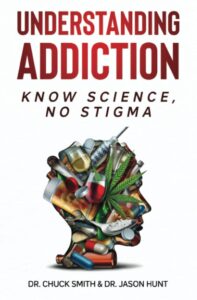Alcohol and substance dependence is an intricate problem of which many people are victims all over the globe.
That is not a disease of an individual and his or her health only, but a disease that affects the entire family as well as professional life of the-addicted person.
Fortunately, addiction is a treatable condition with a variety of therapies and treatment approaches that can be used for helping people with the addiction disorder.
Additional Treatment In this blog post aimed at sharing information on addiction treatment, its types, how to make the right decision and what support exists.
Understanding Addiction:

Drug addiction specifically is a disease that involves the brain being preoccupied with rewarding stimulus, despite negative repercussions.
Psychoactive substances, Additional Treatment including drugs and alcohol, alter the chemical and structural balance of the brain that results in the creation of tolerance, dependence, and addiction.
It can lead to physical, mental and social complications of different severities, which influence the general wellbeing of the concerned person.
Types of Addictions:
- There are many forms of dependency; however, the most familiar classifications are substance abuse disorders such as drug and alcohol.
- There are other subcategories of addiction some of which are Behavioral addiction and Process addiction this includes gambling, Shopping and gaming.
- The nature of dependence required is equally important because the dependence is on a specific substance or behavior
- The treatment depends on which substance or behavior has been abused.
Treatment Options for Addiction:
- Addiction treatment requires therefore not to conform to a universal model, even though different addicts fall into different classes.
- The most successful and valuable treatments are those, which are oriented to meet several needs of a patient and use various methods.
The following are some common treatment options for addiction:
1. Inpatient and Outpatient Treatment Programs: Inpatient programs enable a person to live in the program.
- while outpatient programs permit the person continue living with his or her family.
- Both have several types of therapies and counselling sessions to address substance use disorders and most associated mental health disorders.
2. Medication-Assisted Treatment (MAT): MAT uses both therapies and drugs to assist people to overcome substance use disorders.
- This approach is normally applied when treating opioid, alcohol and tobacco dependency.
3. Therapeutic Communities: These are those treatment programs that take people and give them a home setting as they concentrate on the recovery process.
- Therapeutic communities are characterized by community meetings, work therapy and individual as well as group counseling.
4. Individual and Group Counseling: Counseling and psychotherapy involves skills in teaching the individuals.
- The ways of avoiding relapse in order to have a non-drinking life.
5. Aftercare and Support Groups: However, after a person has finished primary treatment
- has undergone a rehabilitation procedure, they should join aftercare services or support groups such as NA or AA and SMART Recovery.
Choosing the Right Addiction Treatment Program:

- Choosing the right treatment for an addiction could be very a daunting task. One has to take time and find out about the available .
- Feasible options and choose the best you prefer depending on the needs of the individual in question.
Some factors to consider when choosing a treatment program include:
1. Type of addiction: Some programs focus on dealing with certain kinds of dependencies.
- Ensure that the program you get has dealt with the particular addiction that the afflicted person has before.
2. Treatment approach: Many treatment methods include 12-step, holistic, evidence-based or any other treatment depending on a particular patient and his/her preferences.
- What is important is to select a program that will reflect your personal beliefs and values.
3. Staff credentials: Ensure that the staff members in the program are qualified to offer addiction treatment through receiving relevant license.
4. Success rates and reviews: Check the program’s statistics and try to find out whether the clients who had the chance to participate in it .
- were satisfied leaving a comment at the forum or asking others regarding the service quality.
5. Financing options: Treatment programs might be quite expensive, so you need to take your budgetary capacity into consideration when selecting the program.
- Financing is available or in some cases the programs accept insurance.
Conclusion:
Alcoholism as an example is a fatal disease and it is a known fact that the treatment process is not a simple one, it instead entails a conclusive, holistic, and individualized one.
Additional Treatment ,The following paper identifies the various classifications of addicts and various treatment approaches to enable those in need and their families to seek for the best program.
Getting help is thus very important when it comes to fighting addiction and in the process attaining the much needed break-through to recovery.
As we always say, recovery is real and assistance is close for anyone willing to turn the first page towards a happier and deeper existence.



